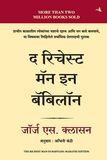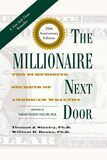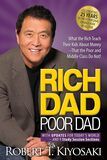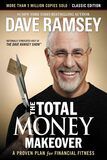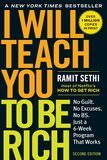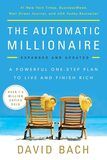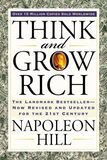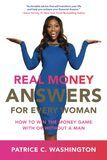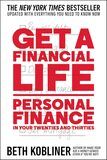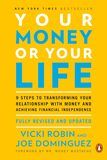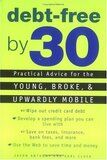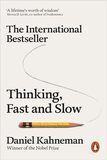12 Best Books on Personal Finance [2025]
Once you have a quick read of the books available in the market you will be well prepared to handle your personal finances. Below is the list of such 12 Best Personal Finance Books to read 2025-
- The Richest Man in Babylon ( Get this book )
- The Millionaire Next Door: The Surprising Secrets of America's Wealthy ( Get this book )
- Rich Dad Poor Dad ( Get this book )
- The Total Money Makeover ( Get this book )
- I Will Teach You to Be Rich ( Get this book )
- The Automatic Millionaire ( Get this book )
- Think and Grow Rich ( Get this book )
- Real Money Answers for Every Woman: How to Win the Money Game With or Without a Man Paperback ( Get this book )
- Get a Financial Life: Personal Finance in Your Twenties and Thirties ( Get this book )
- Your Money or Your Life: 9 Steps to Transforming Your Relationship with Money and Achieving Financial Independence ( Get this book )
- Debt-Free by 30 ( Get this book )
- Thinking, Fast and Slow ( Get this book )
Let us discuss each of the Personal Finance books in detail along with its key takeaways and reviews.
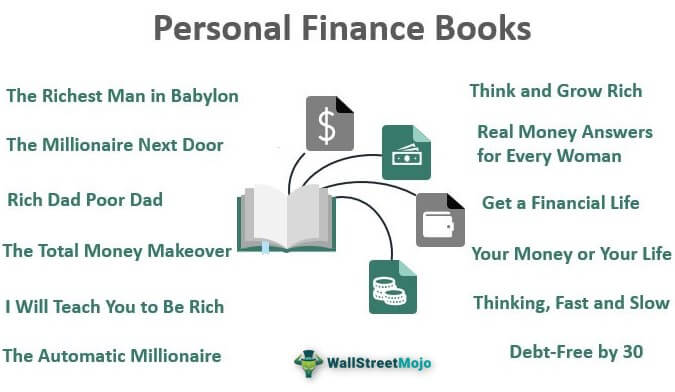
#1 - The Richest Man in Babylon
by George S Clason
Book Review
The weakling in Maths is sure to buckle under the pressure and be off to sleep at the mere name of reading a book on personal finance. To tackle the first and foremost problem of making someone read a book on personal finance, Clason cleverly handles the situation. He provides financial information and advice through the parable format. Now, who would not enjoy a story that is relatable to the daily experiences of each one’s life and is nicely coupled with advice to help us solve our problems?
Key Takeaways
Clason takes us through the financial knowledge through a maze of characters and the situations faced by them. The author plays with these situations carefully to unfold the different layers of financial principles, such as enjoying the benevolence of the Goddess of Luck and how to hold on to wealth and knowledge. He also cautions the readers to be wary of the fact that money can slip away if one doesn't pay attention. Paying off credit and the importance of determination is also charted out in detail.
The Richest Man in Babylon has 7 basic principles:
1) Start thy purse to fattening
2) Control thy expenditures
3) Make thy gold multiply
4) Guard thy treasures against loss
5) Make of thy dwelling a profitable investment
6) Ensure a future income
7) Increase thy ability to earn
This is a classic and a must-read for those who are looking to achieve financial independence in their life.
#2 - The Millionaire Next Door
The Surprising Secrets of America's Wealthy
by Thomas J. Stanley (Author), William D. Danko (Author)
Book Review
Dreaming of becoming a millionaire and not a clue on how to go about it, Thomas J Stanley and William D Danko gives exact answers to your problem in the form of The Millionaire Next Door. A bestseller in 1998, the book expounds on the idea that the truly wealthy people are not the ones who occupy Beverly Hills or Park Avenue. The truly wealthy can be found living just across your street or next door.
This book does not cover a single pop star or athlete; instead, it completely concentrates on the plenty of wall-board manufacturers--particularly ones who take cheap, infrequent vacations! The authors, in a very straightforward fashion, made the readers see the mirror of truth. Stanley and Danko show that accumulation of wealth and its retainment by no means is an easy task. Wealth demands many sacrifices, discipline, and hard work, qualities that are positively discouraged by the high-consumption society.
Key Takeaways
The authors, in their extensive research, were surprised to find that the majority of the wealthy have acquired their wealth in one generation through their supreme confidence in their ability. The factors of wealth accumulation are common across all and seven traits, in particular, are common to all in this elite group. These traits are,
- Live well below your means
- Spend your time, energy, and money efficiently in ways that build wealth
- Believed that financial independence is more important than social status
- Their parents didn't help.
- Their adult children are economically self-sufficient.
- They know how to pick market opportunities.
- They chose the right occupation.
So, read the books to put in some more common sense in your head about the finances.
#3 - Rich Dad Poor Dad
by Robert T. Kiyosaki
About the book
This book is a narration of the author’s childhood journey with two contrasting characters – his best friend’s father (referred to as Rich Dad) and his own father (referred to as Poor Dad).
Book review
The book elucidates the difference between working for money and making money work for us. The author refers to many of his childhood stories to explain various financial and economic concepts, which makes it easier for us to understand the underlying idea. Throughout the book, the author compares the financial habits of his own father (or Poor Dad) and his best friend’s father (or Rich Dad) primarily to highlight the difference in the thought process of the rich and the poor. Also, the author uses some unique ways to clarify otherwise complex concepts. Given the strong subject matter and lucid narration, the book is considered one of the top personal finance books of all time.
Key Takeaways
- If you are a beginner in terms of personal finance, then this book can be a great starter as it can develop your financial intelligence.
- It will change your approach and motivate you to think differently about wealth accumulation.
#4 - The Total Money Makeover
by Dave Ramsey
About the book
The book teaches basic financial knowledge and advocates the idea of living a debt-free life. The author offers step-by-step guidance for inculcating financial discipline among its readers.
Book review
The book primarily targets people who struggle with their personal finance and often find themselves reeling under the burden of never-ending debt, such as mortgage, personal loan, credit card bills, etc. In the most brutal tone, the author points out the flaws in our money management ability that we usually like to ignore. The author is of the opinion that it is better to live your life within your means to secure a pleasant future, which will be free from the burden of debt of any kind. He uses his own story to demonstrate how some restraints and responsible behavior helped him in reviving his financial position after going bankrupt. In short, the book tells you that it is possible to enjoy a debt-free life only if we can follow some basic financial discipline.
Key Takeaways
- It will help you in paying off your existing debt and motivate you to live a debt-free life.
- The narration is fairly straight-forward and hence can be understood easily by anyone.
#5 - I Will Teach You to Be Rich
by Ramit Sethi
About the book
As the title suggests, the author has crafted an investment program in this book that promotes many personal finance strategies that can help in amassing significant personal wealth.
Book review
This book can be a great starting point for individuals with low to moderate awareness of personal finance. Although it proposes an investment program, it doesn’t promote any crazy investment plan per se. The author uses plain and simple language, which makes it easy and comprehendible for the newbies or people without advanced knowledge of finance. Among the various concepts discussed in the book, the author lays special emphasis on the role of retirement funds in the accumulation of personal wealth. Besides, other investment strategies suggested in the book can help in the development of good financial habits. In short, you can successfully build an investment strategy such that your wealth grows automatically only if you can religiously follow the suggestions provided in the book.
Key Takeaways
- It provides step-by-step guidance on efficient personal finance management.
- The use of simple language makes it a great choice for people with low to moderate awareness about personal finance.
#6 - The Automatic Millionaire
by David Bach
About the book
The book presents a pragmatic system based on the timeless financial principles that can help you become a millionaire automatically without following a budget or earning fat paychecks.
Book review
The book starts with a powerful story of an average American couple who met all their life goals and yet managed to retire well before time. This story sets the tone of the book and inspires the readers to follow the path suggested in it. The author preaches some of the most fundamental doable aspects of personal finance and doesn’t indulge in any ‘get rich quick’ scheme. He also uses many practical examples and situations so that it is easy for everyone to connect with the subject matter. However, one major shortcoming of the book that I can think of is that it is entirely focused on the American financial market and retirement plans. Overall, it is a good read for anyone who is new to the concept of personal finance.
Key Takeaways
- It comprises all the basic financial concepts that you should know to efficiently manage your money.
- It is easy to understand and everyone can connect with the concepts owing to the superb examples.
#7 - Think and Grow Rich
by Napoleon Hill
About the book
The book covers the life philosophies of some of the greatest minds of all time which will motivate you to become a changed individual who will know what he or she wants from life.
Book review
This book is one of the oldest well-recognized books on money as well as personality development. It was first published in 1937 during the time of the Great Depression and it covered the philosophies of great men like Thomas Edison, Henry Ford, etc. Over the years, the book has undergone several updates to include the newer breed of great minds like Bill Gates, Sir John Templeton, etc. to ensure that the underlying lessons in it continue to remain relevant even today. The author makes you do more than just reading the book by assigning several mundane tasks, such as writing your daily goals. Effectively, the book does more than just getting you rich as it intends to build your character.
Key Takeaways
- You get the opportunity to learn from the life events of some of the greatest personalities of all time.
- It helps in developing your character that can eventually aid you in becoming a rich man.
#8 - Real Money Answers for Every Woman:
How to Win the Money Game With or Without a Man Paperback – January 19, 2016
by Patrice C. Washington
Book Review
Women and money never stay in one line. The common idea, women are spendthrifts and well going by this ideology; I believe it’s high time we take a reality check with Patrice C Washington’s popular, award-winning, self-published guide which aids women to get out of debt, rebuild their credit, and ultimately fulfill their financial dreams.
Key Takeaways
Patrice’s writing strikes a note immediately because it speaks of her trials and tribulations to maintain her finances while sinking fund in the well of debt at super speed. Patrice educated herself about finance, adopted a new attitude towards money, and, most importantly, adjusted her spending habits. Patrice’s life isn’t unique; her life is exactly what millions of women are living today. Burdened by several responsibilities, women have to stretch their hard-earned money to make ends meet.
Patrice’s book teaches women to take responsibility for their financial future and learn to cultivate wealthy habits. From managing credit cards, homeownership, student loans to affordable childcare and even negotiating for a higher salary, Patrice provides practical, easy to implement advice to establish an “opportunity fund,” and stop collecting STUFF that causes debt. The author urges the modern woman to discover the freedom that comes from feeling financially secure.
This book is a roadmap to prosperity and perhaps a new possibility to regain a secure financial future that will only reap the rewards.
#9 - Get a Financial Life
Personal Finance in Your Twenties and Thirties
by Beth Kobliner
Book Review
The twenties and thirties is the time frame to take daring risks and challenges in your career, but when overburdened with financial woes, life expects you to make calculated, practical decisions that will reap quick benefits. It’s high time you get your financial problems straight and get a grip on where to start. Get this book to bust open the system and learn the tricks of becoming a master of your own money universe.
Key Takeaways
No matter what's happening in the economy, pull up your socks and learn to do the following:
- Pay off your credit cards and student loans and live debt-free
- Start saving, even if you're living paycheck to paycheck
- Take advantage of the latest tax rules and save a bundle
- Find smart investments while still supporting socially responsible companies
- Come up with a down payment and buy a home, even in a tough economy
- Afford grad school
- Protect yourself from identity theft
Kobliner’s advice is easy, and her writing style is extremely lucid. The information is organized beautifully, and each and every idea is very easily digestible by the wayward mind. Finances have been made a lot easier thanks to this book.
#10 - Your Money or Your Life:
9 Steps to Transforming Your Relationship with Money and Achieving Financial Independence
by Vicki Robin (Author), Joe Dominguez (Author), Monique Tilford (Author)
Book Review
Most of us dream of gaining financial independence, owning a house, buying a swanky car, and speaking the truth, loaded with money. In times when all of us are just concerned about managing our money, let’s do a little soul searching for answers to these questions.
How to get out of debt and develop savings?
How to reorder material priorities and live well for less?
How to resolve inner conflicts between values and lifestyle?
How to save the planet while saving money?
Key Takeaways
The fundamental premise of this best personal finance book is quite strong in its concept as the book does not expect you to spend, but rather be conscious of what you are actually spending, which is literally your life energy.
What the book points out is that your REAL hourly wage is often much less than you think it is, and this perspective, when put into place, will stop you from buying frivolous things. So they chart out 9 steps to transform you, and they are:
- Making Peace with the Past;
- Being in the present - Tracking Your Life Energy;
- Where Is It All Going? (The Monthly Tabulation);
- Three Questions That Will Transform Your Life;
- Making Life Energy Visible;
- Valuing Your Life Energy - Minimizing Spending;
- Valuing Your Life Energy - Maximizing Income;
- Capital and the Crossover Point;
- Managing Your Finances.
If living life is what you are aiming for, then don’t fall into the money trap and buy this personal finance book.
#11 - Debt-Free by 30
by Jason Anthony and Karl Cluck
Book Review
In the entire scenario of managing personal finances, the maximum weightage is applied to paying the debt. The maximum weightage is in terms of worry, stress, over-thinking, etc. The least done is planning, striking a balance, and curbing desires. If you are familiar with what I am saying, Debt Free is definitely a must-read book for you.
Key Takeaways
The book offers practical advice that's as slick as it is solid for the young, broke, and upwardly mobile. The authors have handled the topics on the decisions of credit, health insurance, financing a car, banking, and spending money with a great deal of humour teamed with common sense.
Their practical advice appears less hurting due to their straight forward approach with which they motivate people to get rid of their debt. There is an abundance of excellent advice on handling bank fees, insurance issues, credit card debt, cutting down on entertainment expenses, etc., which apply to all ages. It is a great inspiration to get your finances and your life back in order.
#12 - Thinking, Fast and Slow
by Daniel Kahneman
Book Review
This bestseller has received the winner of the National Academy of Sciences, Best Book Award in 2012. It has been selected by the New York Times Book Review as one of the best books of 2011 and A Globe and Mail Best Books of the Year 2011 Title. One of The Economist's 2011 Books of the Year Daniel Kahneman’s book has also been one of The Wall Street Journal's Best Nonfiction Books of the Year 2011. Thinking, Fast and Slow has also been a recipient of the 2013 Presidential Medal of Freedom. With so many awards in its bag, if you cannot be convinced to buy this book and read, we will definitely have to elaborate more.
Key Takeaways
This bestseller involves human psychology and its subsequent effect that has upon the way we think and act. Kahneman introduces two systems that drive the way we think. System 1 is fast, intuitive, and emotional; System 2 is slower, more deliberative, and more logical. The impact of this thinking system affects corporate strategies and brings out the difficulties of predicting what will make us happy in the future. It also elaborates on the idea of the profound effect of cognitive biases on everything from playing the stock market to planning our next vacation―each of these can be understood only by knowing how the two systems shape our judgments and decisions.
The author is extremely clear in his writing and puts things forward in such detail as not to swerve away from our own reasoning. There is gentleness in the tone, which appeals to the reader and brings out the self-help quality in his writings. He offers practical and enlightening insights into how choices are made in both our business and our personal lives―and how we can use different techniques to guard against the mental glitches that often get us into trouble. This book is sure to go down as a classic in the coming years for its groundbreaking research on human actions in managing finance.
Everything is set out before you, but you will have to make an effort to read some, so best of luck to you in your endeavor.
Amazon Associate Disclosure
WallStreetMojo is a participant in the Amazon Services LLC Associates Program, an affiliate advertising program designed to provide a means for sites to earn advertising fees by advertising and linking to amazon.com.
